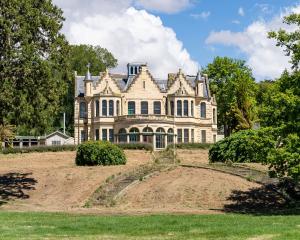
Next month, Doc is launching "Oamaru Urban Trapping — Predators", a backyard trapping programme it hopes the community will get behind to eradicate mustelids, rats, possums and other predators from the North Otago town.
Doc Oamaru ranger Andy Powazynski said the goal of New Zealand becoming "predator free" by 2050 was a "mammoth and ambitious undertaking", but communities nationwide were rising to the challenge. Several areas, such as Wellington’s Miramar Peninsula and Dunedin’s Otago Peninsula, had launched their own projects with ambitious goals in mind, and they had already "certainly made their mark" on reducing predators and formed strong relationships among people and communities.
"But most of all, they have enabled the re-introduction of native birdsong from gardens to public recreation areas and forests," Mr Powazynski said.
The Oamaru trapping programme will be rolled out in three phases. The first, to introduce and involve the whole community in backyard/garden trapping, is getting under way now.
Doc is working alongside the Waitaki Menzshed, which has agreed to build traps and become the outlet and manager of the traps through the setting up of a "trapping library".
"This will be where anyone can come along, like a normal library, and borrow a trap of their choosing [predominantly they will be rat traps], take it home and maintain the setting and management of it," Mr Powazynski said.
"They will have to remove any kills and record the predator and numbers and send the figures to us."
Trap building was under way, and the Menzshed hoped to have 50 ready to be taken from the trapping library by the end of May.
The second phase was to get Oamaru schools involved in trapping around their properties, and the third was getting people involved in longline trapping, where longer traplines are set and managed by volunteer community groups or individuals. Mr Powazynski said these would be used in bigger areas, such as Cape Wanbrow, Bushy Beach and other council reserves.
On May 3, Doc is hosting a community talk at the Scottish Hall to discuss its plans. This would be followed by a two-day trapping course in Oamaru, run by the Nelson Marlborough Institute of Technology on May 24-25, to equip people with the skills and knowledge required to start backyard trapping.
While Doc and the Waitaki Menzshed were kicking things off, Mr Powazynski hoped it would become a community-wide collaboration. He had also started engaging with the business community to attract more support — seeking donations, sponsorships, grants, materials and tools. Oamaru pet food business Topflite had already offered its support.
Waitaki Menzshed co-ordinator Philip Ennor said it was an "ideal project" for the community group to be involved in.
The Menzshed meets three times a week, and has about 18 members at present. The traps they are building were based on a Doc template, and built out of a lot of recycled materials — such as old pallet timber, and corflute signs donated by local real estate agents.
The Menzshed wanted the traps to be user-friendly, to make disposing of kills as pleasant as "dealing with a dead animal could be", Mr Ennor said.
"People don’t like emptying traps, they’re not that pleasant to do, so we’ve tried to make the design of the trap easy for people to manage," he said.
The group would start by building about 50, but would keep going depending on demand and funding.
"There’s 50 traps in the pipeline. But how long’s a piece of string? If somebody gives me thousands and thousands of dollars to buy traps, I’ll buy thousands and thousands of traps. It’ll be a full-on production," Mr Powazynski said.
He hoped by involving the community in backyard trapping, it would inspire people to get involved in other conservation efforts.
The community talk on the Oamaru Urban Trapping project is being held at the Scottish Hall on May 3, from 6pm to 7pm.












